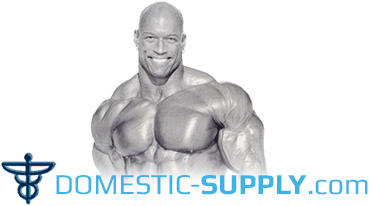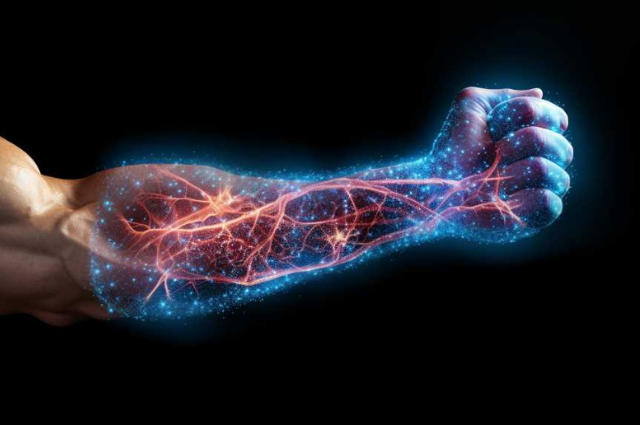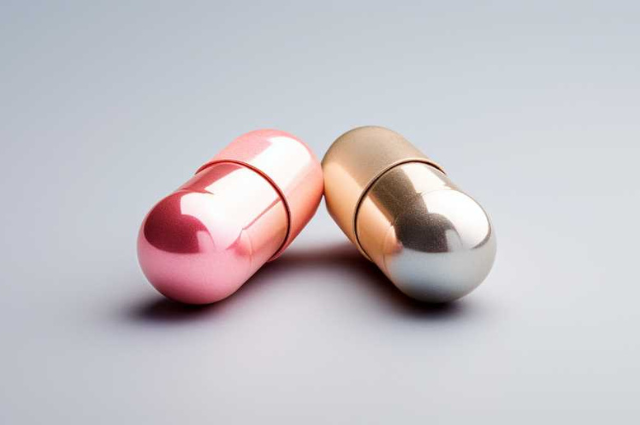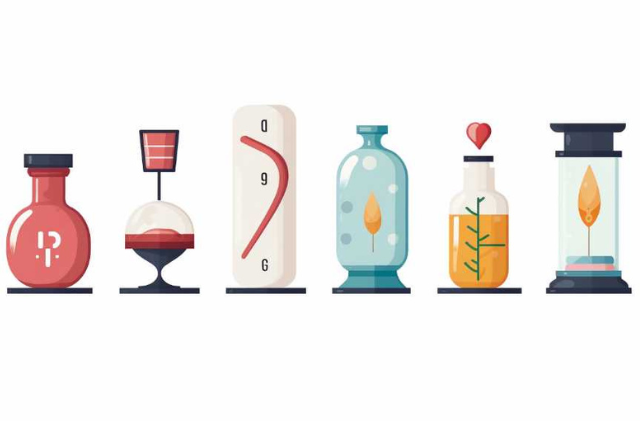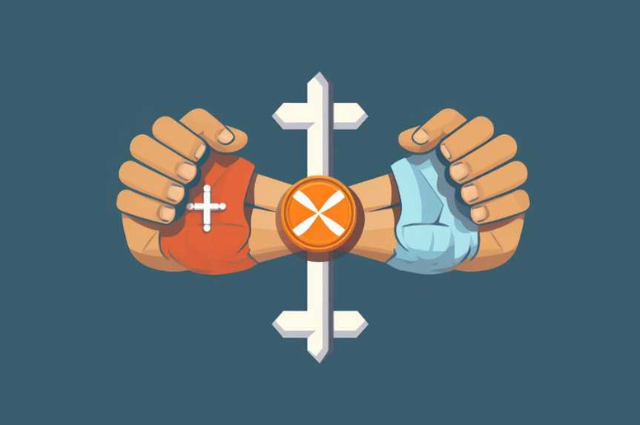10 Effective Tips for Treating Steroid Abuse Addiction
Steroid abuse addiction is a tenacious medical condition that demands a comprehensive, holistic approach for effective treatment. This guide provides a detailed exploration of ten pivotal strategies to efficaciously address this issue. The discussion ranges from the indispensability of professional medical intervention to the value of therapy, counseling, and support groups. Moreover, it delves into the significance of adopting a healthy lifestyle, managing withdrawal symptoms, and preventing relapse. The final segment is dedicated to post-treatment strategies, underlining the importance of maintaining a steroid-free life. This guide serves as a roadmap for those grappling with steroid abuse addiction, offering them a path to recovery and sustained well-being.
Key Takeaways
- Professional medical help is crucial in accurately diagnosing and treating steroid abuse addiction.
- Therapy and counseling options, such as Cognitive Behavioral Therapy and group therapy, are effective in addressing the underlying issues and developing healthier coping mechanisms.
- Support groups provide emotional support, guidance, and practical strategies for individuals and their loved ones.
- Post-treatment strategies, including maintaining a steroid-free life, adopting a healthy lifestyle, and continuing therapy or counseling, are essential for long-term recovery.
Understanding Steroid Abuse Addiction
To fully grasp the complexity of steroid abuse addiction, one must first delve into its underlying causes and manifestations. Steroid abuse is primarily driven by the desire for physical enhancement, often stemming from societal pressures or personal insecurities. As such, it is not merely a physical addiction, but also a psychological one, making it a multifaceted issue that requires a comprehensive approach to treatment.
Steroid abuse may manifest in various ways, with common symptoms including dramatic mood swings, increased aggression, paranoia, and delusions. Physical indicators can include rapid muscle and weight gain, severe acne, and unusual hair growth or loss. Steroids may also cause serious health complications such as liver damage, heart disease, and infertility. These harmful effects underscore the urgency of addressing this pressing public health issue.
In order to effectively treat steroid abuse addiction, it is crucial to understand that it is not a reflection of character weakness or a simple lack of willpower. Rather, it is a complex disorder that requires professional intervention and a compassionate approach. Understanding the individual's motivations and fears is key to devising a treatment plan that addresses their unique needs and challenges.
It is important to note that recovery is a journey that takes time and patience. It is a process that involves learning healthier ways to cope with stress, developing a positive body image, and rebuilding self-esteem. By fostering empathy and understanding, we can support individuals on their path to recovery and help them reclaim control over their lives.
Importance of Professional Medical Help
In the context of treating steroid abuse addiction, professional medical help plays a pivotal role, serving as a bridge between understanding the addiction and initiating the path to recovery. Medical professionals possess the necessary expertise to identify the signs of addiction and to distinguish the physical and psychological issues related to steroid abuse. These professionals can provide accurate diagnosis, effective treatment plans, and expert guidance through the rehabilitation process.
The journey to recovery from steroid abuse can be a challenging one. It may involve physical discomfort, emotional turmoil, and the constant temptation of relapse. This is where professional medical help becomes indispensable. Trained physicians and therapists can aid in managing withdrawal symptoms, reducing cravings, and addressing mental health issues such as depression and anxiety, which often coexist with addiction.
Furthermore, professional medical help extends beyond just the physical aspect of recovery. It also involves psychological support and counselling. Addiction specialists can help patients understand and address the underlying reasons for their steroid abuse, facilitating a deeper and more enduring recovery. They can also guide individuals on how to rebuild their lives post-addiction, helping them regain their self-esteem and reintegrate into their communities.
Lastly, professional medical help offers a network of support, including group therapy and family counselling. These provide a safe and understanding environment where those struggling with addiction can share their experiences, learn from others, and reinforce their commitment to recovery. Thus, seeking professional medical help is not only beneficial but indeed imperative in treating steroid abuse addiction.
Exploring Therapy and Counseling Options
Therapy and counseling options represent the next crucial step in the journey towards recovery from steroid abuse addiction, providing numerous paths tailored to the individual's needs and circumstances. These services offer comprehensive and focused assistance, enabling individuals to understand their addiction, identify triggers, develop coping strategies, and ultimately, achieve a healthier, substance-free lifestyle.
- Cognitive Behavioral Therapy (CBT): This form of therapy is highly effective in addiction treatment. It empowers individuals to recognize and change destructive patterns of thinking and behavior. CBT helps to control the cravings and prevent relapse by teaching individuals how to deal with stressful situations without resorting to steroids.
- Group Therapy and Support Groups: These provide a platform for individuals to share their experiences and learn from others who are facing the same challenges. It fosters a sense of community, reduces feelings of isolation, and promotes mutual support and encouragement.
- Family Therapy: Steroid abuse affects not just the individual but their family as well. Family therapy helps to mend broken relationships and build a supportive environment for the individual's recovery. It educates family members about addiction and its repercussions, enabling them to contribute positively to their loved one's recovery journey.
The Role of Support Groups
Amid the spectrum of treatment strategies for steroid abuse addiction, support groups play an indispensable role by providing emotional companionship and shared experiences. These groups offer a safe, nonjudgmental environment where individuals can openly share their struggles, fears, and victories over addiction, forging a sense of belonging and understanding that's often crucial to recovery.
Support groups act as a powerful healing platform, allowing those battling addiction to connect with peers who share similar experiences. This shared journey fosters a sense of unity and collective strength, empowering individuals to confront and overcome their addiction. The collective wisdom within these groups can provide practical coping strategies, insights into managing withdrawal symptoms, and guidance on rebuilding life after addiction.
Moreover, the role of support groups extends beyond the individual. They offer invaluable reassurance to family members and loved ones, helping them to understand the complexities of steroid abuse addiction and equipping them with tools to provide effective support.
Furthermore, support groups can serve as an adjunct to professional medical treatment. While medical interventions address the physical repercussions of steroid abuse, support groups tackle the psychological aspects, thereby promoting a more holistic approach to recovery.
It's essential to note that no single treatment strategy can guarantee recovery from steroid abuse addiction. However, the role of support groups is undeniable in fostering resilience, promoting mutual support, and providing an avenue for emotional catharsis. As part of a comprehensive treatment plan, support groups can significantly enhance the recovery journey, providing hope and motivation to those grappling with the realities of addiction.
Healthy Lifestyle Changes
Transitioning from support groups, another invaluable component in the recovery journey from steroid abuse addiction involves implementing healthy lifestyle changes.
Embarking on this journey requires a transformative commitment. It is imperative to remember that change takes time, and it is normal to experience setbacks. However, with persistence and patience, adopting a healthier lifestyle can significantly improve the quality of life and aid in recovery from steroid abuse addiction.
- Healthy Eating: Nutritious eating habits are paramount in the healing process. Consuming a balanced diet rich in fruits, vegetables, lean proteins, and whole grains can aid the body in repairing the damage caused by steroid abuse. Implementing dietary changes can also help to manage weight and improve overall health.
- Regular Exercise: Physical activity is another crucial element. It not only helps to build and maintain muscle mass naturally but also improves mental health by reducing anxiety and depression. Exercise should be tailored to individual abilities and preferences, with a focus on consistency rather than intensity.
- Restful Sleep: Adequate sleep is essential for recovery. Steroid abuse can disrupt sleep patterns, making restful sleep a challenge. Establishing a regular sleep routine, avoiding caffeine and electronics before bed, and creating a tranquil sleep environment can help improve sleep quality.
Implementing these lifestyle changes may feel overwhelming at first. However, it is important to remember that each small step contributes to the larger journey of recovery. It's not about perfection, but progress. With each healthy choice, you are moving closer towards recovery and a healthier, more fulfilling life.
Dealing With Withdrawal Symptoms
The management of withdrawal symptoms is a critical phase in the treatment of steroid abuse addiction. These symptoms may include mood swings, fatigue, restlessness, loss of appetite, insomnia, reduced sex drive, and the desire to take more steroids. It's a challenging period, both physically and psychologically for the patient, which requires a comprehensive and compassionate approach to manage effectively.
One of the most effective ways to manage withdrawal symptoms is through medically supervised detoxification. This process ensures that the patient's health is closely monitored as they wean off steroids. It also reduces the risk of severe withdrawal symptoms and complications. Medications can be used to ease the symptoms and make the detoxification process more manageable. For instance, antidepressants can help mitigate mood swings and anxiety, while sleep aids can address insomnia issues.
Cognitive-behavioral therapy (CBT) can also be extremely beneficial during this phase. CBT helps patients understand their addiction and equips them with coping skills to handle stress and avoid situations that might lead to relapse. It's crucial to remember that withdrawal is a process, not a singular event, and patience is required.
Moreover, providing emotional support is just as important as medical intervention. Encouragement from family, friends, and support groups can dramatically help the patient's recovery process. It's also critical to reinforce the idea that seeking help is a sign of strength, not weakness.
Preventing Relapse: Strategies and Tips
Implementing relapse prevention strategies is a crucial step in the comprehensive treatment plan for steroid abuse addiction. It is an ongoing process that requires commitment and dedication from both the patient and the healthcare provider. Despite the challenges, relapse prevention is absolutely attainable with the right approach and tools.
There are several effective strategies that can be employed to prevent a relapse. These strategies are designed to empower patients, helping them to understand their triggers, develop coping mechanisms, and build a support network. The following are three key strategies:
- Cognitive-Behavioral Therapy (CBT): CBT is a powerful tool that equips patients with the necessary skills to identify and manage stressful situations that might provoke a relapse.
- Support Groups and Peer Support: Joining support groups can provide a sense of community and understanding. Peer support, in particular, can be incredibly beneficial as it offers a platform for shared experiences and mutual encouragement.
- Healthy Lifestyle Habits: Regular physical activity, balanced nutrition, and adequate sleep can significantly enhance the patient's overall well-being and resilience to stress, thus reducing the likelihood of a relapse.
Post-Treatment: Maintaining Steroid-Free Life
Post-treatment life management poses its unique set of challenges, yet it is a critical phase in maintaining a steroid-free existence. The path to recovery from steroid abuse, like any form of addiction, is not a straight line but a journey filled with ups and downs. During this time, the individual may deal with cravings, intense emotions, and the fear of relapsing, all of which require resilience and strength.
First and foremost, it is crucial to maintain a strong support network. This may include family, friends, therapists, and peer support groups who can provide encouragement and comfort during tough times. A sense of community can significantly reduce feelings of isolation and encourage ongoing recovery.
Engaging in positive, health-promoting activities is another essential aspect of post-treatment life. Regular exercise, a balanced diet, and sufficient sleep can help strengthen the body and improve mood. Additionally, hobbies and interests can provide a sense of purpose and fulfillment, reducing the likelihood of seeking solace in destructive habits.
Emotional self-care is equally important. Regular therapy sessions can aid in managing stress, developing coping mechanisms, and addressing any underlying issues that may have contributed to the steroid abuse. Mindfulness practices, such as meditation and yoga, can also help regulate emotions and promote mental well-being.
Finally, staying informed and educated about steroid abuse and its consequences can reinforce the decision to maintain a steroid-free life. This knowledge can serve as a powerful deterrent against potential relapses.
Frequently Asked Questions
What Are the Legal Implications of Steroid Abuse?
The legal implications of steroid abuse can be severe and wide-ranging. Illicit use of anabolic steroids is a felony in many jurisdictions and can lead to criminal charges. Moreover, it can result in employment consequences due to workplace drug policies. Additionally, participation in professional sports could be jeopardized due to anti-doping regulations. It's crucial to understand these potential legal ramifications to avoid steroid misuse and the associated negative outcomes.
How Can Steroid Abuse Affect an Individual's Personal and Professional Relationships?
Steroid abuse can significantly impact an individual's personal and professional relationships. The abuse may lead to mood swings, irritability, and aggressive behavior, causing strain in personal relationships. It can also result in impaired judgment, making it difficult to maintain professional relationships. Additionally, the individual may become secretive or isolated due to their addiction, further damaging their interpersonal connections. It's crucial to address these issues when treating steroid abuse.
What Are Some Common Myths and Misconceptions About Steroid Abuse Addiction?
Common myths about steroid abuse addiction include the belief that it only affects athletes or that it's not a 'real' addiction because it doesn't involve a psychoactive substance. Steroid abuse can affect anyone and it is indeed a serious addiction that requires professional help. Misconceptions often stem from lack of awareness about the physiological and psychological dependence that can develop from prolonged use of these substances.
Can You Provide Some Real-Life Examples of People Who Have Successfully Overcome Steroid Abuse Addiction?
Yes, real-life examples of individuals overcoming steroid abuse addiction are quite inspiring. For instance, actor and former professional wrestler Dwayne 'The Rock' Johnson admitted to using steroids in his youth but successfully discontinued their use. Moreover, bodybuilder Arnold Schwarzenegger also overcame a similar addiction. Their stories underscore the importance of professional help, strong willpower, and supportive networks in successfully overcoming steroid abuse addiction.
How Can Schools and Community Organizations Play a Role in Preventing Steroid Abuse?
Schools and community organizations play a crucial role in preventing steroid abuse by providing education about the harmful effects of steroids. They can conduct awareness programs, invite speakers who are experts in the field, or those who have successfully overcome the addiction. Additionally, these institutions can establish robust support systems, including counseling services, to assist individuals who may be struggling with steroid abuse.
Conclusion
In conclusion, overcoming steroid abuse addiction necessitates a comprehensive approach, involving professional medical help, therapy, counseling, support groups, lifestyle modifications, and effective relapse prevention strategies. Sufferers must also be prepared to cope with withdrawal symptoms and maintain a steroid-free life post-treatment. By following these guidelines, individuals can successfully navigate the journey to recovery, leading to healthier lives and a reduced risk of future substance abuse.
